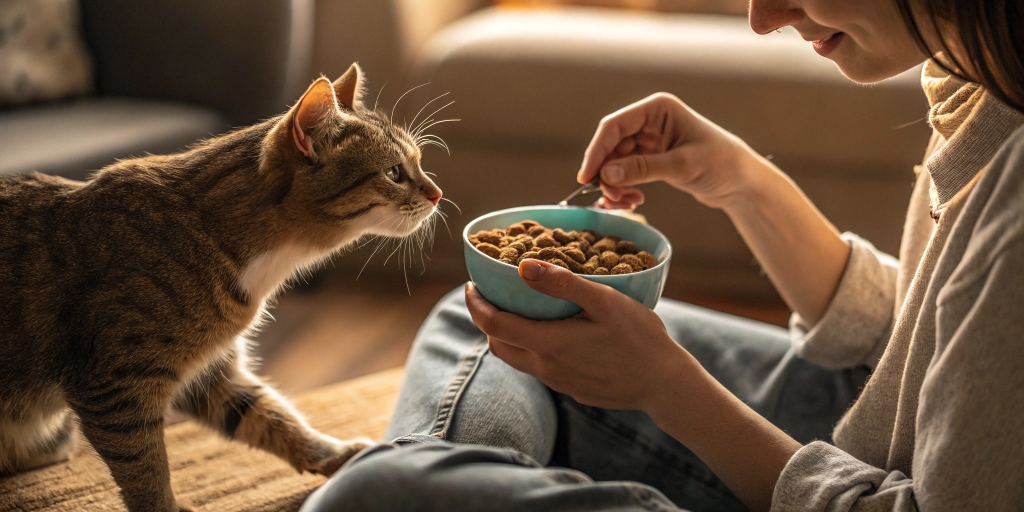Feeding Your Cat
Feeding Your Cat
Give your cat the best nutrition for a long, healthy life. Learn about balanced diets, safe foods, feeding schedules, and tips for every stage of your cat's life.

What Makes a Balanced Diet?
- Animal Protein: Cats are obligate carnivores and need high-quality animal protein.
- Fats: Provide energy and support skin and coat health.
- Taurine: An essential amino acid for heart and vision health.
- Vitamins & Minerals: For immune system and overall well-being.
- Fresh Water: Always available and changed daily.
Feed a high-quality commercial cat food or consult your vet for special diets.
How Often Should You Feed?
- Kittens: 3-4 small meals per day.
- Adults: 2 meals per day, or free-feeding if using dry food.
- Seniors: 2 meals per day, monitor appetite and weight.
Feed at the same times each day and monitor your cat's eating habits for changes.
Foods to Avoid
- Onions & Garlic
- Chocolate
- Grapes & Raisins
- Dog Food
- Alcohol & Caffeine
- Raw Fish
- Bones
- Xylitol (sweetener)
- Fatty/Spicy Foods
- Milk (many cats are lactose intolerant)
If your cat eats something dangerous, contact your vet immediately.
Top Feeding Tips
- Measure portions to prevent obesity.
- Provide both wet and dry food for hydration and dental health.
- Transition foods gradually to avoid stomach upset.
- Keep food and water bowls clean.
- Consult your vet for special dietary needs or allergies.
Remember: Every cat is unique! Always consult your veterinarian for advice tailored to your cat's age, breed, and health.
